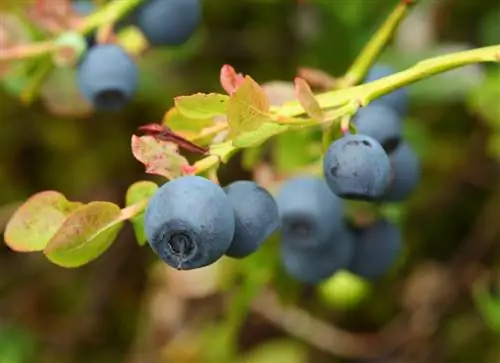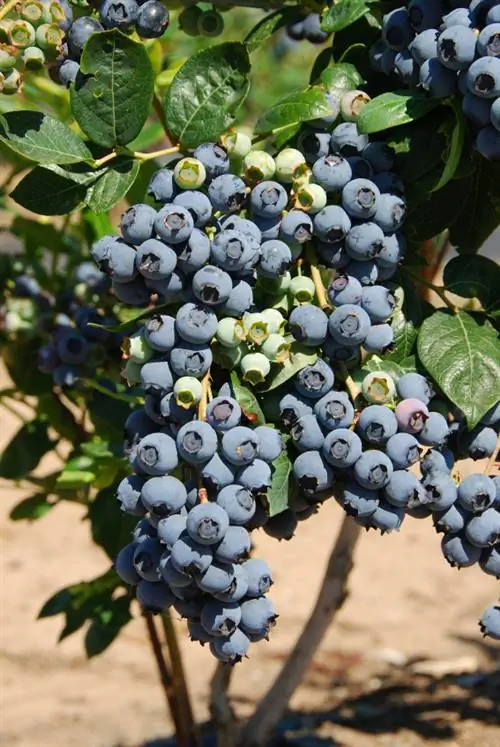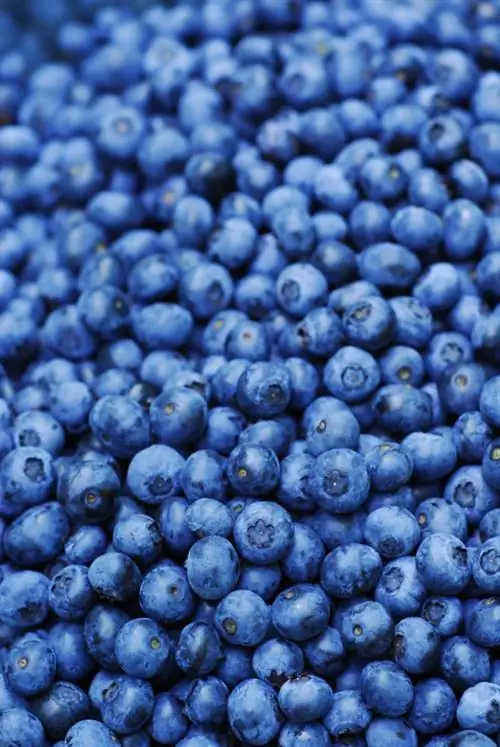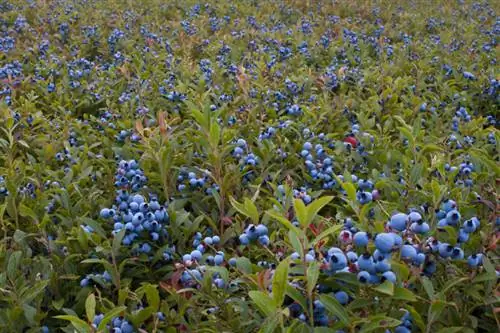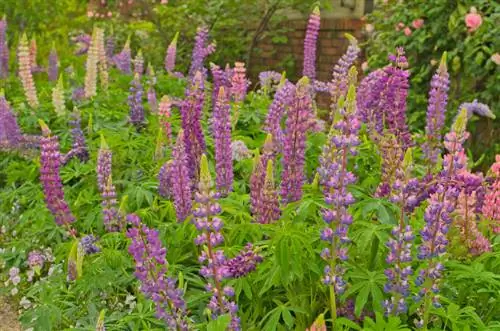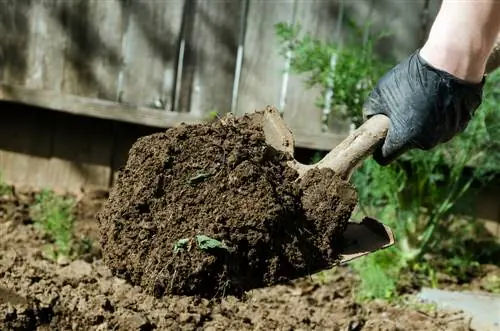- Author admin leonars@hobbygardeners.com.
- Public 2023-12-16 16:46.
- Last modified 2025-01-23 11:20.
In recent years, cultivated blueberries for the garden have become a popular replacement for the rather laborious collection of wild blueberries in the forest during the summer.
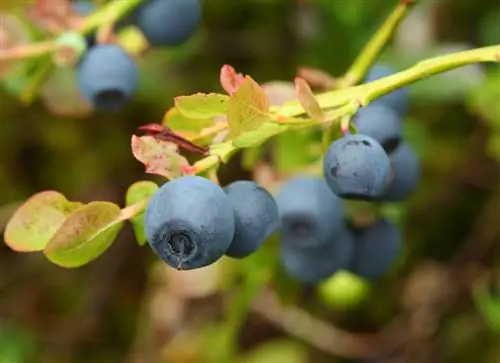
Which soil is best for blueberries?
Acid, lime-free soil is essential for blueberries. Use rhododendron or azalea soil, plant peat or a mixture of loose, clay- and lime-poor soil, spruce needle compost, acidic sawdust and humus-rich leaf and bark compost.
Plants with special needs
Basically, the cultivated blueberries offered for the garden in specialist shops are only very distantly related to their native counterparts in the moor forests. This is noticeable not only in the height of the bushes, but also in the fruits. These are larger and juicier in cultivated blueberries, but have white flesh and so do not turn fingers and tongues blue. What both plant families have in common is that they need a rather acidic and lime-free soil in their location to thrive.
Creating the necessary conditions in the garden
Most gardens lack peaty and acidic soil. Before planting the blueberries, the right soil must first be created. This is usually easier with a pot culture where only the planter needs to be filled with rhododendron or azalea soil or peat. When grown in rows, cultivated blueberries can either be sunk into the ground together with the pots, or planted in a replaced substrate. When replacing the soil, make sure that blueberries root more broadly than deep.
Acid soil for sweet fruits
The commercially available peat should not be fertilized too much for growing blueberries, but a little sand should be added. If you do not want to use milled peat from peatlands for ecological reasons, you will have to use other tools to create acidic soil. In addition to loose soil with as little clay and lime content as possible, you will need the following materials:
- Compost from spruce needles
- Sawdust without artificial additives
- Humus from composted leaves and tree bark
By incorporating these substances, you can slightly acidify normal garden soil. With a corresponding set for soil samples (€9.00 on Amazon) from the store, you can determine the exact pH value and take further measures if necessary.
Tips & Tricks
When planting cultivated blueberries on a rather chalky plot, a slightly raised bank should be created with the acidified soil for the plants. This means that lime from surrounding areas cannot reach the roots of the blueberries with rainwater.

